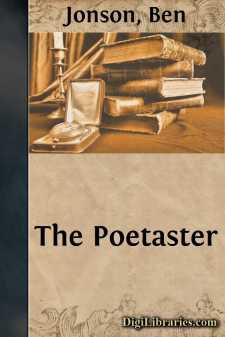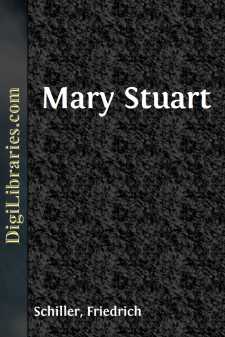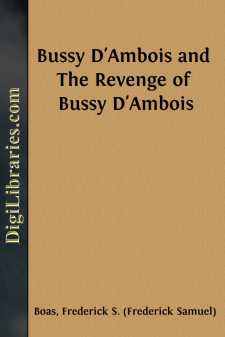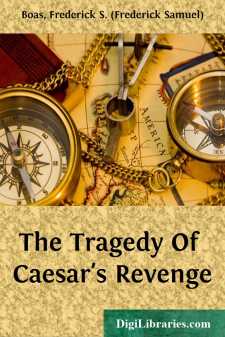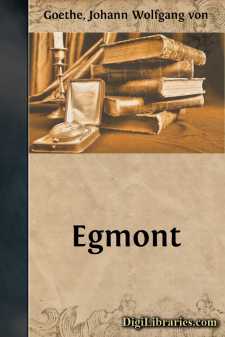Drama
- American 43
- Ancient, Classical & Medieval
- Asian 7
- Caribbean & Latin American 2
- Continental European 50
- English, Irish, Scottish, Welsh 91
- General 105
- Middle Eastern 1
- Religious & Liturgical 1
- Shakespeare 1
Ancient, Classical & Medieval Books
Sort by:
by:
Aeschylus
PREFACE The sense of difficulty, and indeed of awe, with which a scholar approaches the task of translating the Agamemnon depends directly on its greatness as poetry. It is in part a matter of diction. The language of Aeschylus is an extraordinary thing, the syntax stiff and simple, the vocabulary obscure, unexpected, and steeped in splendour. Its peculiarities cannot be disregarded, or the translation...
more...
by:
Ben Jonson
INTRODUCTION THE greatest of English dramatists except Shakespeare, the first literary dictator and poet-laureate, a writer of verse, prose, satire, and criticism who most potently of all the men of his time affected the subsequent course of English letters: such was Ben Jonson, and as such his strong personality assumes an interest to us almost unparalleled, at least in his age. Ben Jonson came of the...
more...
by:
Bernard Shaw
The twelfth of May, 1796, in north Italy, at Tavazzano, on the road from Lodi to Milan. The afternoon sun is blazing serenely over the plains of Lombardy, treating the Alps with respect and the anthills with indulgence, not incommoded by the basking of the swine and oxen in the villages nor hurt by its cool reception in the churches, but fiercely disdainful of two hordes of mischievous insects which...
more...
SCENE I. A common apartment in the Castle of Fotheringay. HANNAH KENNEDY, contending violently with PAULET, who is aboutto break open a closet; DRURY with an iron crown. KENNEDY.How now, sir? what fresh outrage have we here?Back from that cabinet! PAULET.Whence came the jewel?I know 'twas from an upper chamber thrown;And you would bribe the gardener with your trinkets.A curse on woman's...
more...
by:
Euripides
Introduction[1] The Electra of Euripides has the distinction of being, perhaps, the best abused, and, one might add, not the best understood, of ancient tragedies. "A singular monument of poetical, or rather unpoetical perversity;" "the very worst of all his pieces;" are, for instance, the phrases applied to it by Schlegel. Considering that he judged it by the standards of conventional...
more...
George Chapman was probably born in the year after Elizabeth's accession. Anthony Wood gives 1557 as the date, but the inscription on his portrait, prefixed to the edition of The Whole Works of Homer in 1616, points to 1559. He was a native of Hitchin in Hertfordshire, as we learn from an allusion in his poem Euthymiæ Raptus or The Teares of Peace, and from W. Browne's reference to him in...
more...
Plays on the subject of Caius Julius are so numerous that some difficulty arises in properly distinguishing the titles. In the case of the piece here reprinted the first title, which is also the head title, suggests a play of Chapman’s, while the running title is the traditional property of William Shakespeare. It seems, therefore, best that it should become known by the name which appears second on...
more...
ACT I SCENE I.—Soldiers and Citizens (with cross-bows) Jetter (steps forward, and bends his cross-bow). Soest, Buyck, Ruysum Soest. Come, shoot away, and have done with it! You won't beat me! Three black rings, you never made such a shot in all your life. And so I'm master for this year. Jetter. Master and king to boot; who envies you? You'll have to pay double reckoning; 'tis...
more...
PREFACE. In the selection of my last Shakespearean revival at the Princess’s Theatre, I have been actuated by a desire to present some of the finest poetry of our great dramatic master, interwoven with a subject illustrating a most memorable era in English history. No play appears to be better adapted for this two-fold purpose than that which treats of Shakespeare’s favorite hero, and England’s...
more...
by:
Gilbert Murray
PREFACE If I have turned aside from Euripides for a moment and attempted a translation of the great stage masterpiece of Sophocles, my excuse must be the fascination of this play, which has thrown its spell on me as on many other translators. Yet I may plead also that as a rule every diligent student of these great works can add something to the discoveries of his predecessors, and I think I have been...
more...



